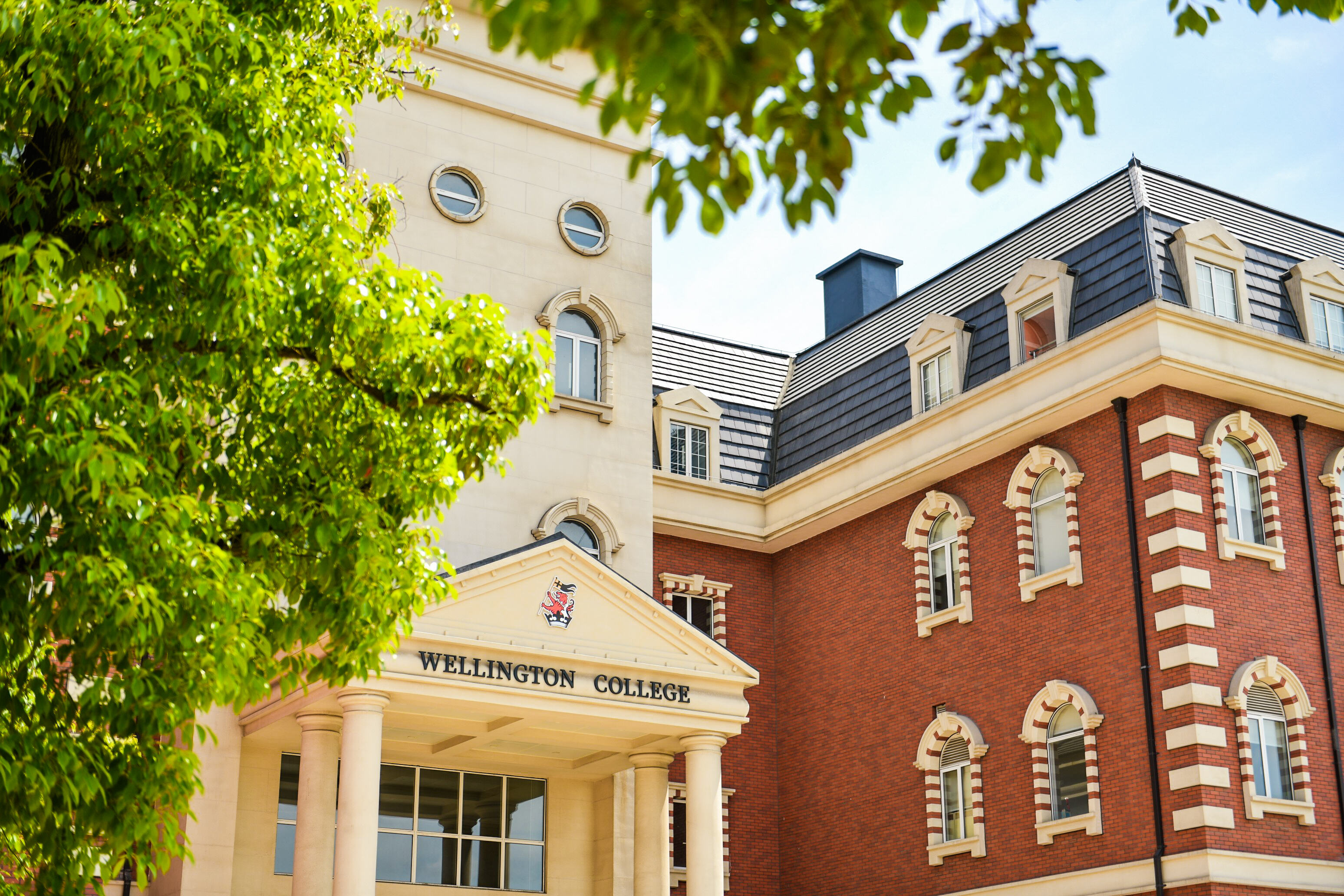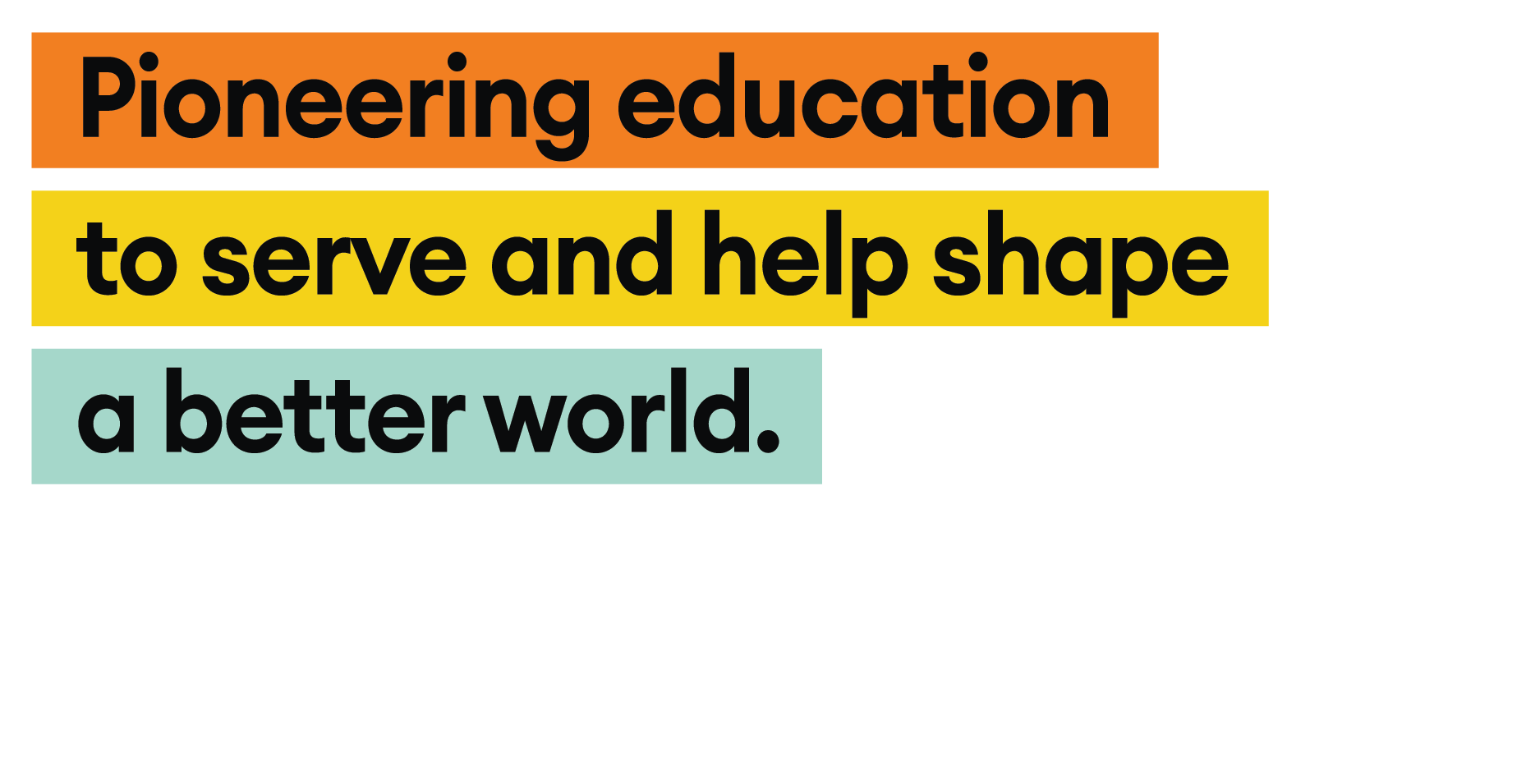Ana Romero’s Visit: A Catalyst for Sustainability and Education
This week, Wellington College Education (China) - Hangzhou had the distinct honour of hosting Ana Romero, the esteemed Head of Sustainability at Wellington College International. Renowned for her dynamic leadership and unwavering commitment to sustainability and global education, Ana's visit proved to be an enlightening and transformative experience for the entire school community.
▲ Ana (left in picture)
Ana Romero, a trailblazer in the sustainability domain, has a rich history of advising local governments in Latin America and collaborating with international NGOs. Since 2014, she has been at the helm of sustainability initiatives at Wellington College UK, where she has championed numerous programmes aimed at combating climate change, promoting wellbeing and cultivating global skills. Her efforts have consistently fostered international partnerships and driven significant collaboration with organisations devoted to shaping a sustainable future.
In 2023, Ana expanded her oversight to include Wellington College International, thereby extending her influence to schools in China, Thailand, Jakarta and India. Her role on the advisory boards of influential organisations such as Sustainability and Environmental Education (SEEd), Linking Environment and Farming (LEAF) and the Global Education Benchmark Group (GEBG) underscores her dedication to driving meaningful change on a global scale.
Ana's visit to Wellington College Education (China) - Hangzhou was marked by a series of engaging interactions with staff, pupils and non-academic personnel, all aimed at assessing the school's current sustainability practices and identifying opportunities for future advancement.
Throughout her visit, Ana was deeply impressed by the school's tree-planting programmes and community projects, which reflect a strong commitment to environmental stewardship. She was particularly impressed with the nursery's outdoor learning area, natural plants and the use of natural materials inside the building, which provide an enriching and sustainable environment for the youngest members of the school community. She was equally inspired by the pupils' dedication to understanding climate change and the teachers' enthusiasm for integrating the sustainable development goals (SDGs) into their curriculum. Ana's interactions with the entire school community—from nursery to sixth form pupils and operations staff—highlighted the collective passion for sustainability that permeates Wellington College Education (China) - Hangzhou.
Ana's visit served as a powerful reminder of the importance of fostering a culture of sustainability within schools. Her discussions with pupils and staff emphasised the critical role that education plays in empowering future generations to become true changemakers. As Ana continues to work closely with Wellington College Education (China) - Hangzhou, the school's commitment to addressing climate change and promoting sustainable practices will undoubtedly reach new heights.
In conclusion, Ana Romero's visit to Wellington College Education (China) - Hangzhou has ignited a renewed passion for sustainability and global education within the school community. Her leadership and expertise will continue to inspire and guide Wellington College Education (China) - Hangzhou as it strives to prepare pupils for dynamic careers in a rapidly evolving world, equipped with the skills and knowledge to tackle the most pressing environmental challenges of our time.
Ana: At Wellington College in the UK, our educational provision is designed to cultivate competencies and skills that enable pupils to pursue careers in a fast-evolving world. We have established pathways, such as sustainability and climate education programmes, that offer experiential learning opportunities through sustainable development and climate action projects. These initiatives allow pupils to immerse themselves in project-based learning, exploring different areas of interest while applying their knowledge to real-world scenarios.
It's crucial that pupils take charge of their learning, and our role as educators is to support them in adapting their education through facilitation. We aim to build competencies in empathy, teamwork and communication. By setting these pathways, we help pupils develop and implement the essential skills needed for their projects and future careers.
Ana: We've found various ways to connect and share our experiences, aligning our initiatives to help our pupils thrive and implement ideas across different areas. In sustainability, we are focusing on aligning our perspectives through the Sustainable Development Goals (SDGs) as a framework for action. We are eager to explore further collaboration within our family of schools and identify how projects can address specific SDGs of interest.
One example is how our pupils engage through Model United Nations (MUN) societies, which enhance skills relevant to politics, diplomacy and international relations. The MUN model offers pupils an opportunity to conduct mock-ups, where they can practice climate diplomacy and represent countries on important issues like energy, water, forestry and climate finance. This hands-on approach also keeps them informed about significant events, such as the United Nations Conference of the Parties on Climate Change.
This is just one of the many projects we envisage for future collaboration, exploring numerous other ways to advance global sustainability education within our institutions.
Ana: Absolutely. I had an incredible meeting with pupils, from reception children as young as three or four, to senior pupils already in Year 11. It was fascinating to see the initiatives they are already pursuing from their classrooms, and how they are communicating their ideas to their teachers. For example, the 'Tidy Patrol' initiative is marvellous, where pupils take responsibility and learn to embody the values of Wellington College in their actions and learning.
Moreover, seeing how our senior pupils are willing to listen to and involve the younger children in their projects is a wonderful example of intergenerational dialogue and equity. It truly demonstrates how deeply the values of Wellington College are being integrated across all age groups, creating a cohesive community where everyone learns and grows together.
Ana: I firmly believe that our pupils, guided by the values embedded in Wellington's ethos, will emerge as future leaders transforming our society for the better. They will address pressing global issues that we cannot afford to ignore. What sets our pupils apart is their sense of hope; rather than being daunted by global challenges, they are imbued with the confidence that they can make a meaningful difference and contribute to a better world.
Ana: Absolutely. One of the standout initiatives that exemplifies our international collaborations is the Gold Box Project. This project has proven to be a highly innovative method for engaging our pupils in transformative conversations about various global issues, allowing them to interact with different communities worldwide in an immersive manner.
In Wellington College UK, this collaborative effort has involved several departments, including Chaplaincy, Global Citizenship, Sustainability and Global Education, working together to bring the Gold Box to life. Initially introduced a few years ago, this project has since evolved, becoming an integral part of our school. It serves as a dynamic space for lessons, leisure and communication with other global communities.
We are particularly pleased that Wellington College Education (China) - Hangzhou has adopted and enhanced the Gold Box Project. They have embraced this initiative wholeheartedly, facilitating transformative conversations and dialogues that not only expand the pupils' world views but also build essential competencies in global communication. This endeavour showcases how each pupil can play a role in these meaningful discussions.
Looking ahead, we are optimistic about the potential for other Wellington schools within our family to join this journey. If we can extend such projects across all our institutions, we will undoubtedly strengthen the international links among our pupils, alumni and staff, fostering a truly connected and globally-minded Wellington community.
Related Articles


















